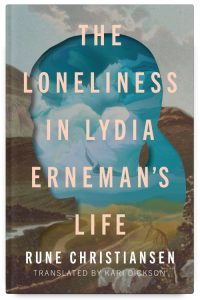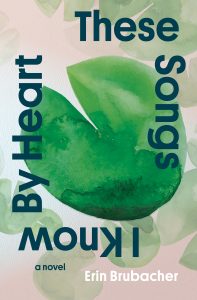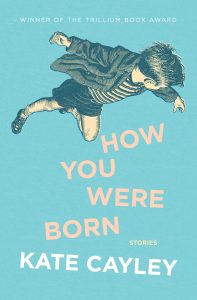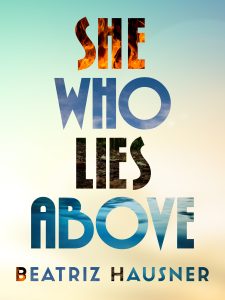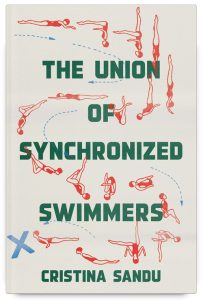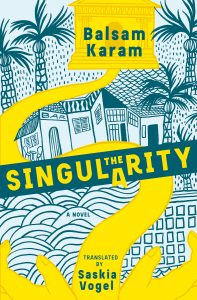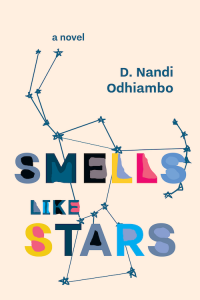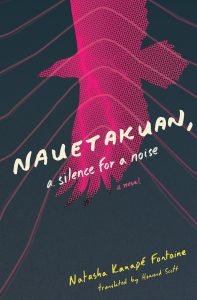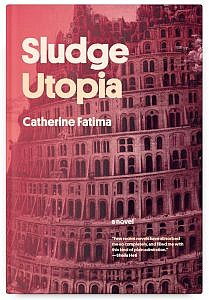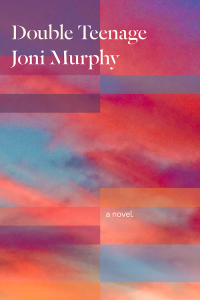Hello Summer! Twelve Books to Dive Into This Summer

Hello Summer! It’s that glorious time of year again to leave your worries behind and do more of what you love (ahem, reading). Whether on vacation or a staycation, or relaxing at the beach or pool, summer is the perfect time to disconnect and unwind with a great book. And remember a “beach read” is any book you take with you to the beach. We’ve assembled an ultimate book list to help kickstart your summer reading adventure. Without further ado, here are twelve books to dive into this summer. Happy reading!🌊🏖️📚
PS) To help you stock up on summer reading for the relaxing days ahead, we’re having a sale across our online shop. Save 25% off all available titles from July 3-7. Simply use code SUMMER24 at checkout to save.
The Loneliness in Lydia Erneman’s Life by Rune Christiansen, translated by Kari Dickson
A quiet, beautiful exploration of solitude and how we relate to other beings. Christiansen’s masterpiece has been lauded by critics for doing something very rare: offering deep pleasure and joy in reading with little theatrics. Written in concise prose, the gravity and tranquility of this novel make it a gift—a soothing, contemplative offering about the depths of our inner worlds.
These Songs I Know By Heart by Erin Brubacher
Through a three-day canoe trip, chance encounters, fierce female friendship, step-parenting, IVF, pandemic isolation, and quiet moments between humans, These Songs I Know By Heart weaves vignettes of everyday mythology into an absorbing and honest meditation on the connections in our lives. With razor-sharp reflection, humour, and most of all love, we are reminded that there’s no formula to life and that instead, we must celebrate what makes the small moments of our lives extraordinary.
How You Were Born by Kate Cayley
The stories in the award-winning collection, How You Were Born, each more incisive and devastating than the last, examine the difficult business of love, loyalty, and memory. Sharing the bizarre and tragi-comic of life—whether in present-day Toronto or in small towns of the early 20th century—Cayley champions the importance of connections, even when missed or mislaid, and the possibility of redemption.
She Who Lies Above by Beatriz Hausner
In She Who Lies Above, Hausner brings Hypatia of Alexandria, the fourth-century Byzantine mathematician, astronomer, and philosopher, to life. She does so through layered ventriloquism: publishing amorous correspondence from the feminist icon’s friend and former student, Synesius of Cyrene, and scribing Hypatia’s replies in turn. This is a rigorous, hyper-layered collection of poems that are elegiac and erotic; steeped in appreciation for a life of books and the technical and transcendent brilliance their authors can exhibit.
The Union of Synchronized Swimmers by Cristina Sandu
In a stateless place, on the wrong side of a river separating East from West, six girls meet each day to swim. At first, they play, splashing each other and floating languidly on the water’s surface. But as summer draws to an end, the game becomes something more. They hone their bodies relentlessly. They barter cigarettes stolen from the factory where they work for swimsuits to stretch over their sunburnt skin. They tear their legs into splits, flick them back and forth, like herons. They master holding their breath underwater. Then, one day, it finally happens: their visas arrive. But can what’s waiting on the other side of the river satisfy their longing for a different kind of life?
The Singularity by Balsam Karam, translated by Saskia Vogel
In an unnamed coastal city filled with refugees, the mother of a displaced family calls out her daughter’s name as she wanders the cliffside road where the child once worked. The mother searches and searches until, spent from grief, she throws herself into the sea, leaving her other children behind. Bearing witness to the suicide is another woman—on a business trip, with a swollen belly that later gives birth to a stillborn baby. In the wake of her pain, the second woman remembers other losses—of a language, a country, an identity—when once, her family fled a distant war. Karam weaves between both narratives in this powerful exploration of loss, history, and memory, offering a fresh approach to language and aesthetic as she decenters a white European gaze.
We, Jane by Aimee Wall
Searching for meaning in her Montreal life, Marthe begins an intense friendship with an older woman, also from Newfoundland, who tells her a story about purpose, about a duty to fulfill. It’s back home, and it goes by the name of Jane. Marthe travels back to a small community on the island with the older woman to continue the work of an underground movement in 60s Chicago: abortion services performed by women, always referred to as Jane. She commits to learning how to continue this legacy and protect such essential knowledge. But the nobility of her task and the reality of small-town life compete, and personal fractures within their group begin to grow.
Big Shadow by Marta Balcewicz
Judy is an isolated teenager on the cusp of adulthood struggling to craft an identity for herself—especially as the artist she wants to be. There is little help around her. Her only friends are increasingly obsessed with a cultish belief in a coming “Big Shadow.” At her lowest point, she meets Maurice Blunt, a “has-been” fixture of the 1970s NYC punk music scene. Judy believes Maurice—a man more than twice her age desperately seeking lost adoration—is the ticket out of her current life, and she begins taking secret trips to visit him in New York. With each trip and frustrated promise, however, she feels the creeping realization that there is a price to pay for her golden ticket entry into this insular and moribund scene.
Smells Like Stars by D. Nandi Odhiambo
Engaged couple Kerstin Ostheim and P.J. Banner have been together six months after meeting on a dating website. As their wedding fast approaches, they question their compatibility while investigating a mystery taking place in Ogweyo’s Cove, the Pacific tourist haven where they live. In the meantime, Schuld, Kerstin’s transgender daughter, is preparing for an art exhibit after being hospitalized for a physical assault while her Olympic medalist boyfriend, Woloff, comes to terms with a career-ending injury. As Kerstin and P.J. get closer to the truth about the mystery, they also begin to more clearly see each other. Simultaneously, Schuld’s and Woloff’s pasts come back to haunt them, jeopardizing their sense of a possible future. Ultimately, Smells Like Stars draws attention to what is hidden in plain sight, what cruelties life presents, and what struggles we face in our search for meaning.
Nauetakuan, a silence for a noise by Natasha Kanapé Fontaine, translated by Howard Scott
Monica, a young woman studying art history in Montreal, has lost touch with her Innu roots. When an exhibition unexpectedly articulates a deep, intergenerational wound, she begins to search for stronger connections to her Indigeneity. A new friendship with Katherine, an Indigenous woman whose life is filled with culture and community, emphasizes for Monica the possibilities of turning from assimilation and toxic masculinity to something deeper and more universal. A timely, riveting story of reclamation, matriarchies, and the healing power of traditional teachings, Nauetakuan, a silence for a noise affirms how reconnecting to lineage and community can transform Indigenous futures.
Sludge Utopia by Catherin Fatima
Using her compulsive reading as a lens through which to bring coherence to her life, twenty-five-year-old Catherine engages in a series of sexual relationships, thinking that desire is the key to a meaningful life. Yet, with each encounter, it becomes more and more clear: desire has no explanation; desire bears no significance. Sludge Utopia presents, in highly examined, raw detail, the perspective of a young woman’s punishing though intermittently gratifying sexuality and profound internalized misogyny, which causes her to bring all of life’s events under sexuality’s prism.
Double Teenage by Joni Murphy
Double Teenage tells the story of Celine and Julie, two girls coming of age in the 1990s in a desert town close to the US–Mexico border. Starting from their shared love of theatre, the girls move into a wider world that shimmers with intellectual and artistic possibility, but at the same time, is dense with threat. Part bildungsroman, part performance, part passionate essay, part magic spell, Double Teenage ultimately offers a way to see through violence into an emotionally alive place beyond the myriad traps of girlhood.

